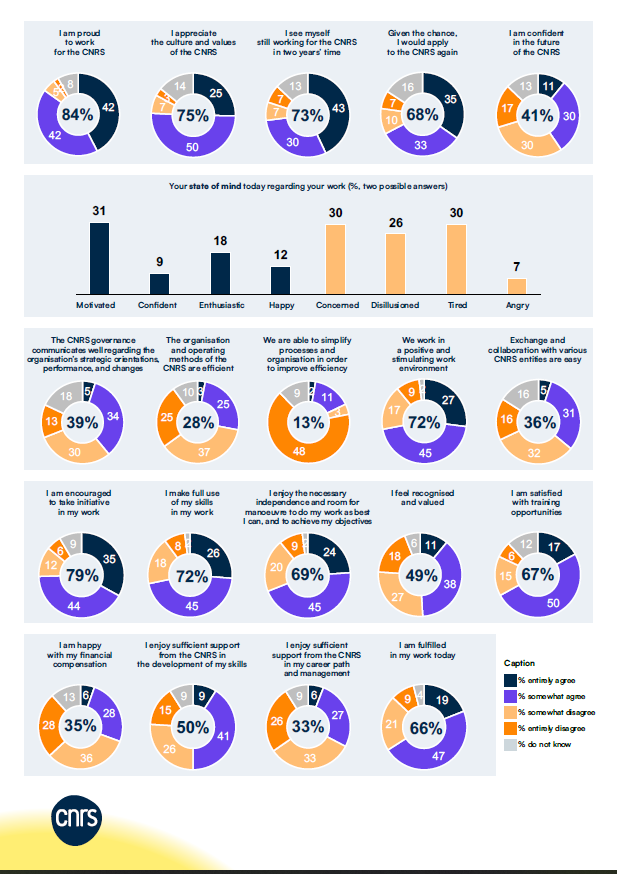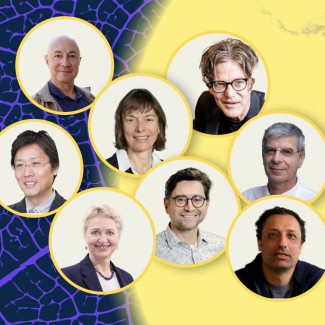
CNRS staff survey: a milestone in the organisation’s history
In the autumn of 2023, the CNRS organised a survey to identify the expectations of its staff members and understand the ties binding them to their employer.
From 11 September to 10 October 2023, the CNRS conducted an internal study among its nearly 33,000-strong workforce. Carried out by Ipsos via an overall enquiry as well as individual verbatim accounts, “The CNRS and You” sought to assess the level of commitment of various members of personnel towards their employer, regardless of the entity they work for, whether it be a regional office, an Institute, the headquarters, or a research unit.
First, what stands out from the massive level of participation (44% of staff) is that there is pride in belonging to the largest European research organisation and one of the world's most prominent. The scientific and technical expertise of the CNRS, the quality of its research, as well as its image with the general public (French link), institutional partners, and the international community are among the primary reasons for this pride.
However, this feeling is offset by working conditions considered difficult by a majority of employees, regardless of their status and working entity. While many appreciate their independence, the freedom of initiative they enjoy, the training and skills development promoted by the CNRS, as well as a sense of fulfilment at work, lots of staff members also blame the means at their disposal for successfully carrying out their mission. The criticism focuses on tools and procedures deemed inefficient, a lack of recognition, insufficient financial compensation, and the precariousness of certain positions. Scientists add that their research – which they describe as a “dream” and even a “calling” – is hindered by administrative burdens, poor coordination between the various entities of the CNRS, and the recurring search for funding (especially via calls for proposals). This is why, when asked what they consider to be the organisation’s priorities, CNRS employees often point to the need to “focus on a human approach”, simplify the organisation (first and foremost its tools and procedures), and make it more attractive in terms of salary and career development.
Beyond the issue of working conditions, a majority of CNRS personnel expressed concern regarding their institution’s future. They believe that the CNRS lacks a long-term perspective, and communicates little or poorly regarding its major strategic orientations, to the point that its workforce struggles to project itself into the future. CNRS staff members therefore consider a clear view of the organisation’s objectives – as well as funding over the long term to be a priority, and a token of their employer’s durability.
“Your answers show that you are asking for substantial changes not only with respect to numerous aspects of your work, but also relating to the ecosystem in which it is performed. The wishes you expressed … are wide-ranging, and cover career attractiveness, streamlined procedures, simplified tools, and the clarified organisation and role of the CNRS”, points out Antoine Petit, Chairman and CEO of the CNRS. “Our survey details the essential improvements recommended by last month’s HCÉRES report, and echoes the concerns raised by our Scientific Board’s white paper. Your feedback regarding your difficulties and aspirations calls for a collective effort, one that also delves into our decision-making processes and pathways”.
With this in mind, the CNRS CEO will be bringing together representatives from the Institutes, departments, regional offices, and trade-union organisations on 19 December to present these results and set up an action plan.
[View the results of the survey in the graph below]




